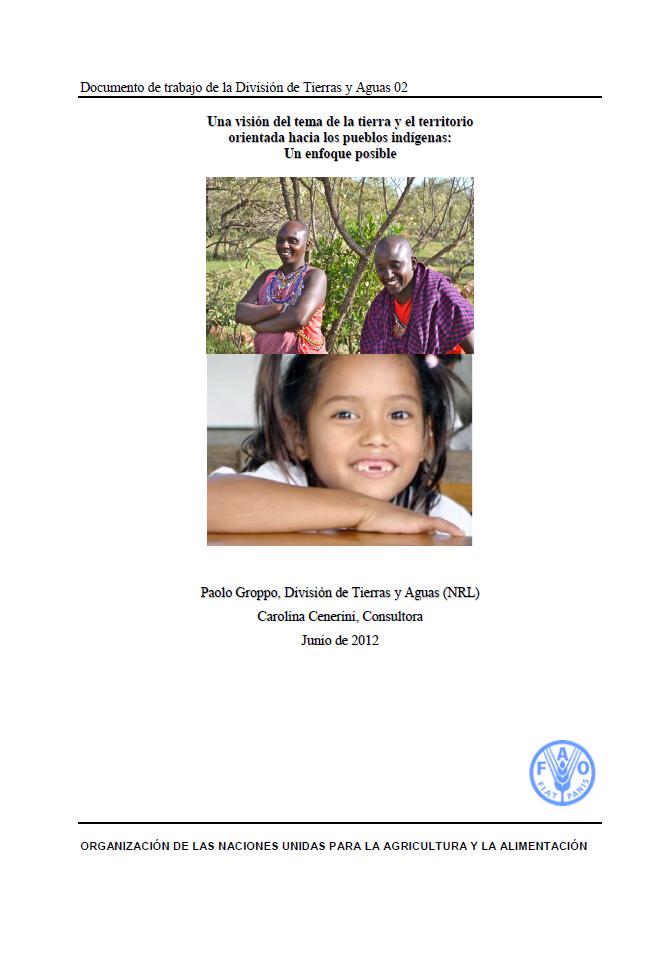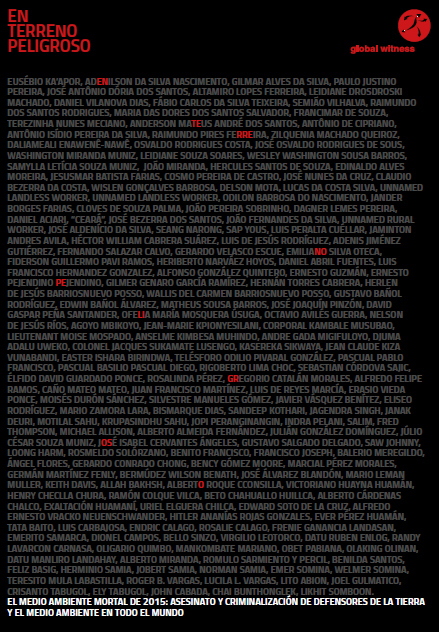Publicación de la FAO: Una visión del tema tierra/territorio orientada hacia los Pueblos Indígenas: un enfoque posible
La Declaración Final de la Conferencia sobre Reforma Agraria y Desarrollo Rural (CIRADR), celebrada en Marzo de 2006 en Porto Alegre, Brasil, ha inspirado las reflexiones iniciales:
“Reconocemos que las políticas y prácticas para ampliar el acceso cierto a la tierra, al agua y demás recursos naturales y el suministro de servicios rurales deberían ser revisadas para lograr el completo respeto de los derechos y aspiraciones de la población rural, mujeres y grupos vulnerables, incluyendo comunidades rurales tradicionales e indígenas...”





